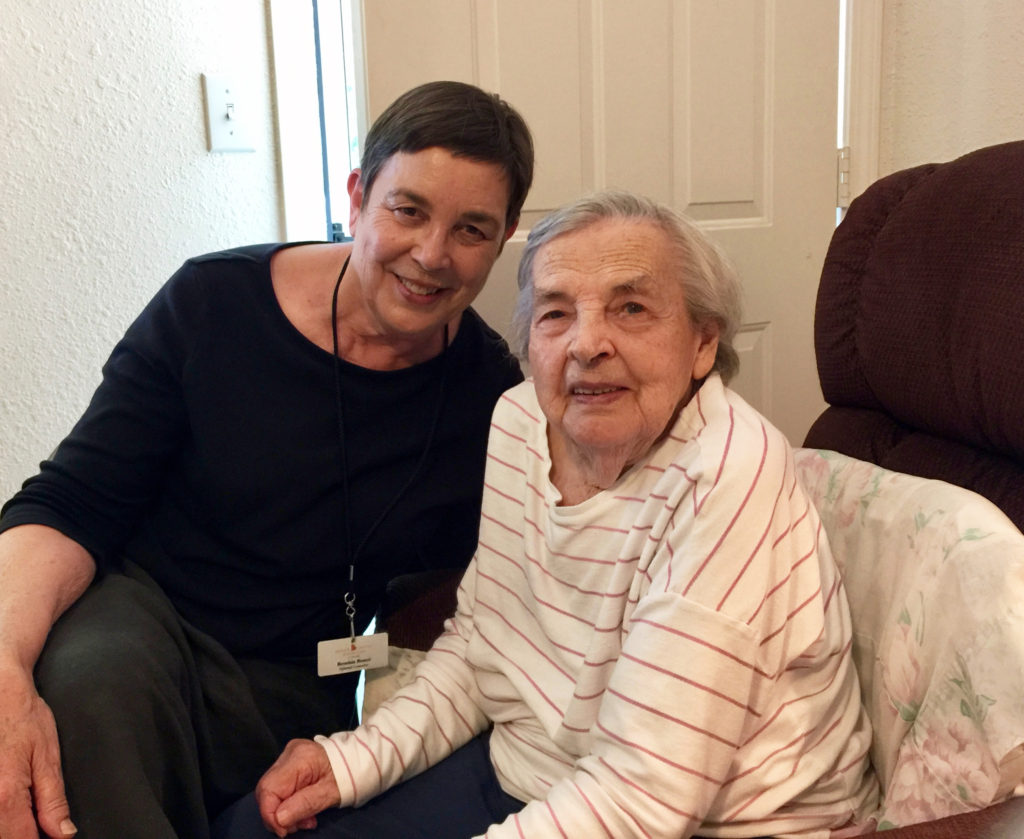What is spiritual care?
by Renshin Bunce, MDiv, Chaplain
August 2020
To say “chaplain” is to invoke an image of a religious professional, perhaps a man in a reverse collar, who enters at a time of crisis and resolves problems with a really good prayer. That image is out of date. As chaplaincy is practiced now, the care we offer is spiritual – not religious. The fact that I’m a Zen Buddhist priest, and that I trained as a chaplain as a way of carrying my vow into the world, is helpful to me, but in a visit, what’s important is what my patient believes and needs.
 I entered a monastery when I was in my 50s because of a deep yearning for answers to the question of suffering. After seven years, I entered a one-year hospital residency so I could leave the monastery and find work as a professional chaplain. Zen meditation develops an ability to sit still and not turn away from difficulty, which turned out to be great training for working with hospice patients and their family members.
I entered a monastery when I was in my 50s because of a deep yearning for answers to the question of suffering. After seven years, I entered a one-year hospital residency so I could leave the monastery and find work as a professional chaplain. Zen meditation develops an ability to sit still and not turn away from difficulty, which turned out to be great training for working with hospice patients and their family members.
Very early in my residency, I was called to the ICU in the middle of the night. A man in his 50s was dying; his wife was with him. Neither of them wanted my help – it was her sister who had asked for a chaplain. As I sat in the hallway listening to the sounds of suffering and sorrow and wondering what I was supposed to do, I realized that my presence could remind everyone that dying is not just a physical event. This means showing up and listening – really listening – to the answer when I ask a patient or family member how they are doing. And after that come words: explanations, reassurances, and comfort and prayers.
During the time of COVID, that physical presence is gone. I no longer sit by the bedside of people who are lost in dementia, drop in on lonely people in facilities, or visit patients and loved ones in their homes. Now I talk on the phone. It’s been a trick to learn how to bring presence to a method of communication that’s based primarily on words. Fortunately, it can be done.
When I started my training, I thought my job was to “fix,” but I’ve come to see that as both arrogant and impossible. Who am I, after all, to say that another is broken, or that I’m so powerful that I can or should change the course of a lifetime in a few visits?
What seems clear to me after a decade visiting dying people is that mostly we want to know that we’re seen and heard. Whether it’s over the phone or in person, that’s my goal in my work as a hospice chaplain.

